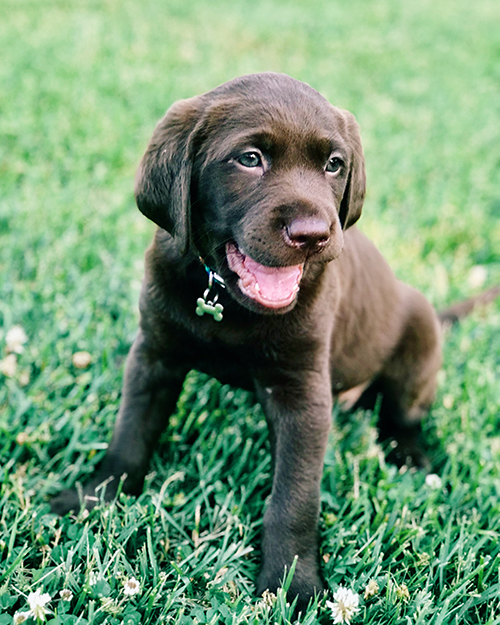Puppy Teething: What to know and how to help
 Did you know that puppies, just like infants, are born toothless? They start their lives drinking milk just like babies do and go through the sometimes painful process of new teeth emerging. So what do you need to know to make the process smooth and easy for your pup? And what might you need to look out for to ensure their health and safety? Here are a few tips.
Did you know that puppies, just like infants, are born toothless? They start their lives drinking milk just like babies do and go through the sometimes painful process of new teeth emerging. So what do you need to know to make the process smooth and easy for your pup? And what might you need to look out for to ensure their health and safety? Here are a few tips.
The Facts
Dog’s first teeth come in between 2 and 5 weeks, followed by incisors at 4 to 6 weeks. Puppies grow 28 baby teeth, which include 6 incisors, 2 canines, and 6 premolars. These teeth are much sharper than the adult teeth that grow in later in life, letting our pups hunt without the skills they gain later in life. At 3 to 4 months, the baby teeth begin to fall out and you may notice teeth embedded in your puppy’s favorite toys. By 4 to 5 months your pup should have his full adult teeth, usually 42 of them.
How to Help
Vary the texture—as your pup’s teeth go through the different processes of growth, different toys are going to feel better or worse against their gums. Give them lots of choices, from rough to smooth, soft to firm. Cold is good—soak a pup’s toy with water or freeze them when your dog begins to whine. The cold will feel good against their inflamed jaws. Watch out for your things—a teething pup will chew anything! If you have shoes laying around or old socks on the floor, your pup will likely try to chew them. Keep them away to protect your things and ensure your dog does not eat something they should not.
When to Worry
Most of the time teething is goes smoothly, but if you notice your dog’s upper jaw jutting far out beyond the lower, your pup may have an abnormal bite that needs correction. If you notice your dog having trouble chewing, get him to a vet or dentist so they can help. If you notice your dog is in pain and they don’t seem to be losing their baby teeth on schedule, it might be time to get things checked out. Sometimes teeth can occlude and cause infection or jaw problems. While your dog is teething, dental cleaning will be key! Make sure you get a dental cleaning in by the end of the first year.
Your pup will get through this time with just a little help from you and patience on both your parts. Just watch out for your shoes as he teethes!